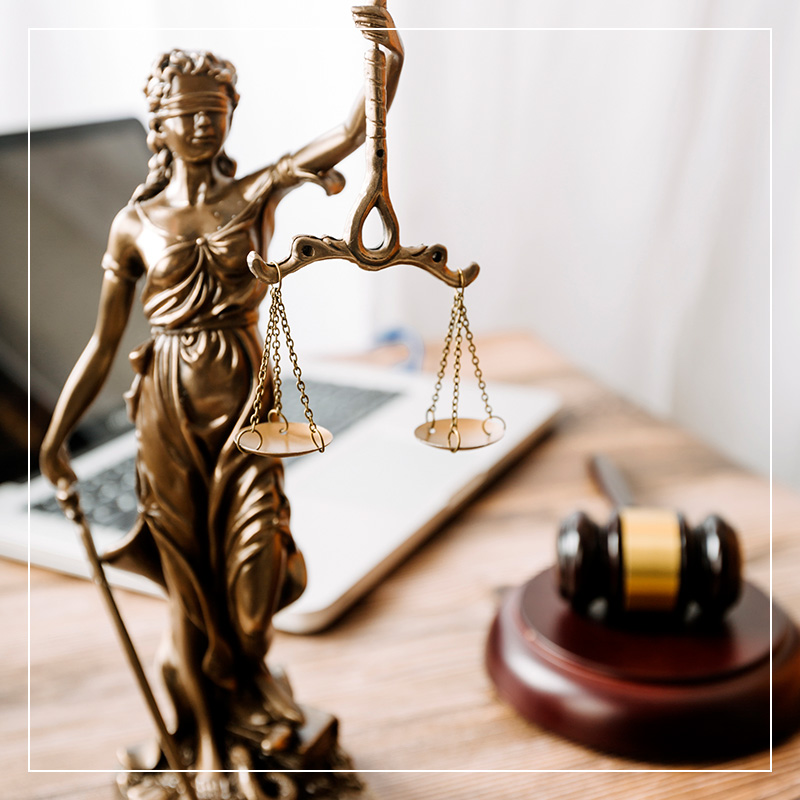Domestic violence is a legal matter involving harm or attempted harm against a family or household member. These actions include physical violence, emotional abuse, or threats within the domestic sphere. In legal terms, it extends beyond physical altercations to encompass a range of behaviors that jeopardize the well-being of individuals within a familial or household context.
In domestic violence cases, the role of evidence is pivotal. It is the cornerstone for building a case, allowing the defense to present a compelling narrative that supports their side while weakening the prosecution's arguments. Evidence takes various forms, from physical injuries and medical reports to witness testimonies and digital communications. The ability to strategically use evidence can significantly influence the trajectory of legal proceedings.
Navigating the complexities of evidence in domestic violence cases underscores the importance of having a skilled attorney. An experienced lawyer plays a crucial role in gathering and analyzing evidence. They possess the know-how to identify relevant information that strengthens the defense's position and challenges the prosecution's arguments. Attorneys understand the nuances of domestic violence cases and are adept at leveraging evidence to construct a robust defense strategy.
A lawyer's role goes beyond evidence collection – it involves a meticulous analysis of the gathered information to build a persuasive defense. By partnering with a knowledgeable attorney, individuals facing allegations can benefit from legal insights and strategic approaches that maximize the impact of available evidence.
If you need legal representation in Newport Beach, Corrigan Welbourn Stokke, APLC, is here to help. Contact us at (949) 251-0330 to schedule a consultation.
Types of Evidence in Domestic Violence Cases
Domestic violence cases demand a comprehensive understanding of the diverse forms of evidence that can shape legal proceedings. This section delves into the intricate tapestry of evidence, unraveling its complexities and shedding light on its significance.
Physical Evidence
Physical evidence, such as injuries and corresponding medical reports, serves as a cornerstone for the defense. By meticulously scrutinizing medical assessments, the defense can challenge the severity or causation of injuries, providing an alternative interpretation that aligns with the client's narrative.
Photographic evidence is essential for the defense. By dissecting photos and documentation, the defense can cast doubt on the timeline or circumstances of alleged incidents. This visual evidence allows for a meticulous examination that may unveil inconsistencies in the prosecution's claims.
Witness Testimonies
For the defense, identifying and presenting reliable witnesses is a strategic imperative. Witnesses who can attest to the character and behavior of the accused provide a counter-narrative that challenges the prosecution's portrayal. Careful selection and preparation of witnesses become vital elements in crafting a robust defense.
The impact of witness statements lies in their content and the credibility they lend to the defense's case. Well-prepared witness statements can introduce doubt, highlight alternative perspectives, and create a narrative aligning with the defense strategy, countering the prosecution's version of events.
Police Reports
While police reports often form the prosecution's arsenal, the defense can strategically dissect these reports. By scrutinizing the details and context, the defense may uncover inconsistencies or biases that it can use to challenge the report's reliability.
Technology and Digital Evidence
The defense can navigate the admissibility of digital evidence by challenging its authenticity and relevance. By questioning the source and context of text messages, emails, or social media interactions, the defense can cast doubt on the prosecution's attempt to establish guilt through technological means.
The defense can strategically use call records and GPS data to challenge the prosecution's timeline of events. By presenting alternative timelines or questioning the accuracy of location data, the defense can introduce reasonable doubt into the prosecution’s narrative.
Navigating Challenges with Evidence
In criminal defense, navigating through admissibility challenges and strategically countering evidence is paramount.
Admissibility Issues
Defense counsel grapples with the intricacies of hearsay and unreliable evidence. Tackling hearsay requires a meticulous approach, often challenging the source's credibility or establishing exceptions to the hearsay rule. Unreliable evidence poses a significant hurdle, demanding a keen assessment of its impact on the case. Legal professionals must delve into the circumstances surrounding the evidence, exposing weaknesses to diminish its admissibility.
Defense attorneys deploy multifaceted strategies to address admissibility challenges. These approaches involve thoroughly examining the rules of evidence, exploiting loopholes, and leveraging legal precedents. Diligent research and persuasive arguments are critical tools in establishing a case for the inadmissibility of specific evidence. Successful navigation of admissibility challenges hinges on legal acumen and strategic maneuvering.
Impact of Evidence on Legal Proceedings
Evidence, when skillfully presented, can sway the direction of a case. Defense counsel must critically analyze the weight and relevance of evidence, anticipating its potential impact on the judge or jury.
Defense counsel employs various strategies to counter the influence of compelling evidence.
These strategies may involve:
- Challenging the chain of custody
- Questioning the methods of collection
- Presenting alternative interpretations.
The goal is to create reasonable doubt and undermine the prosecution's case. A robust defense against strong evidence demands a strategic blend of legal know-how and tactical maneuvering.
Seeking Justice with Legal Representation
The foundation of a fair legal system rests on the ability of defense counsel to construct a strong and strategic defense. It is not merely a tactical choice but a fundamental right to safeguard individuals against arbitrary or unjust legal proceedings. A robust defense allows individuals to present their case thoroughly and challenge the prosecution's narrative.
Defense attorneys are crucial in scrutinizing evidence and navigating the complex legal landscape. A just result can be pursued through their insight, facilitating fair treatment within the judicial system.
For those in Newport Beach seeking a dedicated and experienced defense team, Corrigan Welbourn Stokke, APLC, stands ready to provide legal counsel. Contact us at (949) 251-0330.



